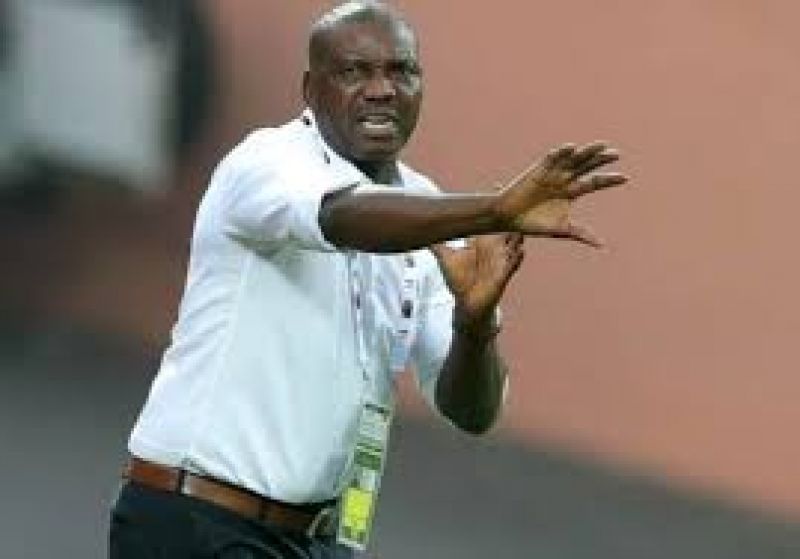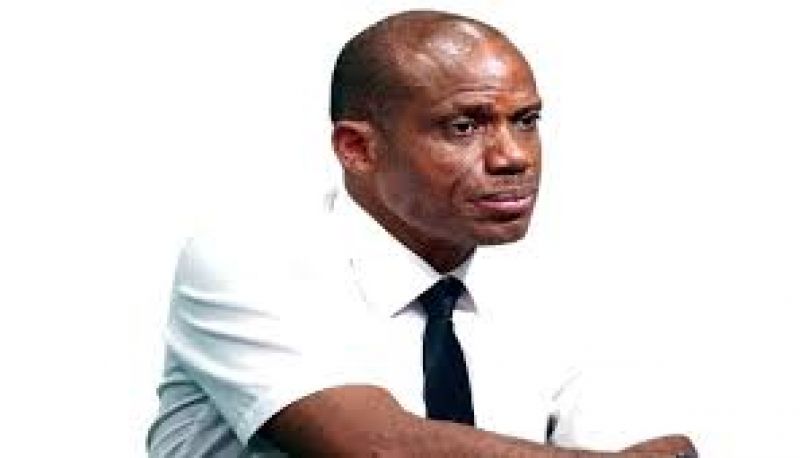By Daily Sports on June 18, 2016

Rio state authorities declared a "state of public calamity" Friday over a major budget crisis in order to release emergency funds to finance the Olympic Games due to begin in August.
The decree authorizes the state to "adopt all necessary emergency measures to ration essential public services in order for the Rio 2016 Olympic Games and Paralympic Games to take place."
"Any institutional instability would hurt the country's image," said the decree, signed by acting governor Francisco Dornelles.
The August 5-21 Olympics and September 7-18 Paralympics in Rio de Janeiro will be the first to be held in South America.
The events pose "serious difficulties in delivering essential public services and could even cause a collapse in public safety, health, education, transportation and environmental management," the decree said.
Rio de Janeiro state is in financial straits due to the fall in global oil prices, while Brazil overall is floundering through a deep recession.
Police, teachers and other government workers in Rio state have seen paychecks delayed because of the cash crunch. Retirees have protested because of unpaid pensions.
Brazil's economy shrank 3.8 percent last year, its worst recession in 25 years. The International Monetary Fund and the market are predicting a similar contraction this year.
- 'Incredibly worrying' -
Amnesty International expressed concern at the cuts to social services, which could affect the training of security agents to work in the crime-ridden slums known as favelas.
The decision to cut services and security ahead of the Olympic Games "is not only a shock but is also incredibly worrying, especially given the bad history of police killings and murders," Amnesty's Brazil director, Atila Roque, said in a statement.
Rio's state budget shows a $5.6 billion shortfall for 2016. Royalties from oil -- the state's main revenue-earner -- are projected to collapse from $3.5 billion in 2014 to just $1 billion this year.
Dornelles has called the situation in his state "tragic."
He urged the national government to step up, and pressed authorities to look at what public assets could be sold off to raise cash.
After much pleading, Rio received nearly $300 million from the federal coffers to extend its metro network to link the main Olympic zone of Barra da Tijuca with the chic Ipanema district.
But the federal budget is in no better shape.
Brazil's primary fiscal deficit is forecast to be around $47 billion. And the government is confronted with double-digit inflation, unemployment at a record 11 percent.
- Political ructions -
The climate has been worsened by political upheaval. The country is in the midst of a controversial impeachment process against its leftwing president, Dilma Rousseff, who has been suspended from office for alleged manipulation of public accounts.
She has been replaced in the interim by her vice president, Michel Temer, who comes from the center-right PMDB party -- the same grouping that runs Rio de Janeiro and the state housing it.
Rousseff's fate is to be decided by the Senate in the coming months, likely in the middle of August, when the Olympics will be in full swing.
The Games are expected to bring in 10,500 athletes and half a million tourists from around the world, with sporting events and Rio itself to be thrown into the glare of international media.
•Text gotten from Yahoo.
Source Daily Sports
Posted June 18, 2016
You may also like...

Wimbledon hope to have Murray statue ready by...

Saraki laments death of football fans in Calabar...

Two Olympic Champions Among Four Russians Accused Of...

Lyon Agree To Sign Shaqiri From Liverpool

Premier League move a must before retirement —...

Wakama named best coach as Team Nigeria return...

_9.jpg) NPFL: Rangers win big as Nasarawa shock Abia
NPFL: Rangers win big as Nasarawa shock Abia Nigeria know World Table Tennis Champs foes today
Nigeria know World Table Tennis Champs foes today Bayelsa athletics boss Oredipe maps out dev plans
Bayelsa athletics boss Oredipe maps out dev plans Falcons stars dominate IFFHS Africa XI
Falcons stars dominate IFFHS Africa XI Eguavoen backs NPFL talents for Nigeria squad despite CHAN failure
Eguavoen backs NPFL talents for Nigeria squad despite CHAN failure He’s very strong, Simeone returns Osimhen praise
He’s very strong, Simeone returns Osimhen praise Joshua boxing return still uncertain
Joshua boxing return still uncertain NBA star Bane eyes Nigeria switch
NBA star Bane eyes Nigeria switch Palmer 'very, very happy' at Chelsea, says Rosenior
Palmer 'very, very happy' at Chelsea, says Rosenior_2.jpeg) AFCON 2025: VAR recording discloses what referee said before Morocco's penalty miss against Senegal
AFCON 2025: VAR recording discloses what referee said before Morocco's penalty miss against Senegal AFCON 2025 highlights: World-class stadiums, VAR drama, record attendance
AFCON 2025 highlights: World-class stadiums, VAR drama, record attendance Oliseh slams Osimhen for costing Eagles’ AFCON trophy
Oliseh slams Osimhen for costing Eagles’ AFCON trophy Rangers International going, going . . . (63,494 views)
Rangers International going, going . . . (63,494 views) Amaju Pinnick: A cat with nine lives (54,788 views)
Amaju Pinnick: A cat with nine lives (54,788 views) Second Term: Amaju Pinnick, Other NFF Heavyweights Home to Roost •How Pinnick Broke the Jinx (52,684 views)
Second Term: Amaju Pinnick, Other NFF Heavyweights Home to Roost •How Pinnick Broke the Jinx (52,684 views) Current issues in Nigerian sports: Matters arising (52,344 views)
Current issues in Nigerian sports: Matters arising (52,344 views) Sports Development: Zenith Bank on the zenith (52,277 views)
Sports Development: Zenith Bank on the zenith (52,277 views) Missing $150,000 IAAF Grant: Solomon Dalung’s Hide and Seek game (52,187 views)
Missing $150,000 IAAF Grant: Solomon Dalung’s Hide and Seek game (52,187 views) Gov. Abdullahi Ganduje’s solid footprints, commitment to sports development in Kano State (52,054 views)
Gov. Abdullahi Ganduje’s solid footprints, commitment to sports development in Kano State (52,054 views) NFF Presidency: Pinnick, Maigari, Ogunjobi, Okoye in Battle for Supremacy (51,608 views)
NFF Presidency: Pinnick, Maigari, Ogunjobi, Okoye in Battle for Supremacy (51,608 views) Olopade, BET9A wave of revolution in NNL (50,787 views)
Olopade, BET9A wave of revolution in NNL (50,787 views) Commonwealth Games 2018: Shame of Muhammadu Buhari, Solomon Dalung (49,314 views)
Commonwealth Games 2018: Shame of Muhammadu Buhari, Solomon Dalung (49,314 views) Ibrahimovic’s Man U exit: Whose decision is it? And in whose interest? (47,704 views)
Ibrahimovic’s Man U exit: Whose decision is it? And in whose interest? (47,704 views) John Mikel Obi: Segun Odegbami’s Outrageous Call! (47,172 views)
John Mikel Obi: Segun Odegbami’s Outrageous Call! (47,172 views)